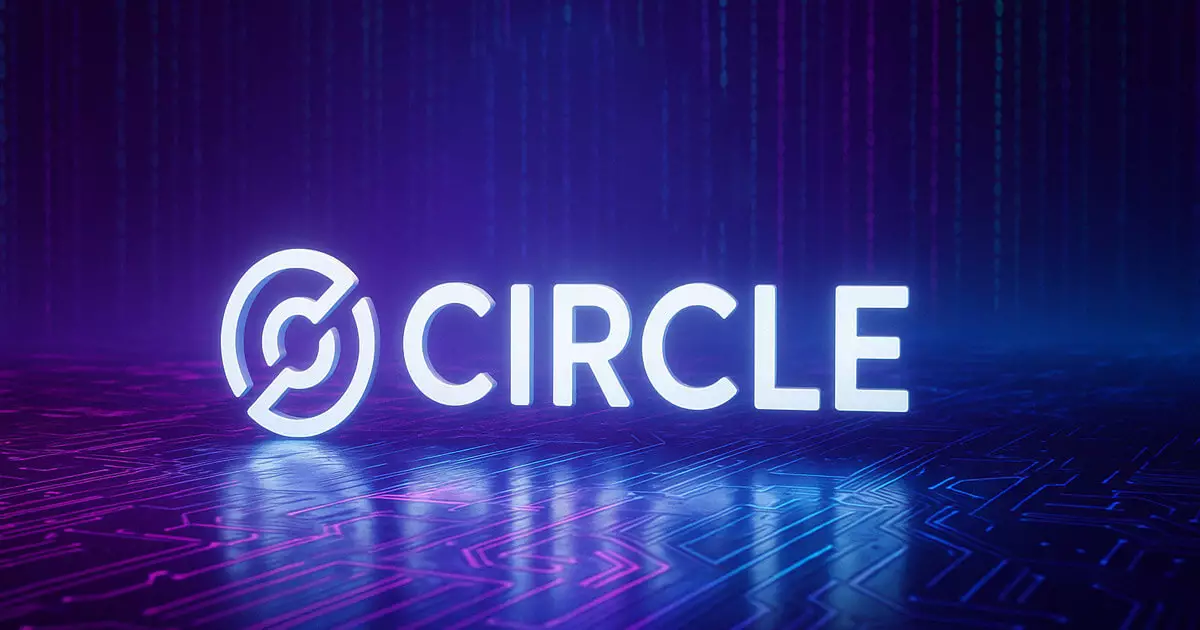Circle’s recent surge in share price by an astonishing 34% to close at $199.59 on June 18 marks a pivotal moment not just for the company but for the entire cryptocurrency market. This explosion in value follows the enactment of the GENIUS Act by the Senate, paving the way for regulatory clarity in the stablecoin sector. The act, which received bipartisan approval in a vote of 51–23, promises to impose regulations that many see as essential for the future stability and trust in digital currencies. The fact that Circle’s stock reached an all-time high—6.5 times its IPO price of $31—attests to the bubbling optimism permeating the market.
Revolutionizing the Landscape of Financial Regulation
The implications of the GENIUS Act are profound. It mandates that stablecoin issuers like Circle maintain reserves that equate to their outstanding tokens. By restricting these reserves to cash or short-term Treasuries, the legislation seeks to instill a sense of safety among investors who have been wary of the inherent risks associated with volatile cryptocurrencies. This step toward regulation is not merely an exercise in compliance; it represents a fundamental shift that could redefine the operational framework of stablecoins in the years to come.
Circle’s CEO, Jeremy Allaire, aptly characterized this moment as making “history.” Indeed, the potential for stablecoins to drive economic growth and national competitiveness is immense. This is a sentiment that should resonate with center-right enthusiasts who value the principles of market freedom paired with responsible oversight. To ensure stable economic growth, it is vital that the U.S. positions itself as a technological leader, and this legislation could be the catalyst it desperately needs.
Market Reactions: A Broader Windfall
The excitement surrounding the GENIUS Act isn’t limited to Circle. Other cryptocurrency stocks also saw significant gains in the wake of the bill’s advancement. Coinbase’s shares experienced a notable 14% increase, while Robinhood’s stock rose by 4.5%. This collective upward trajectory reflects a bullish sentiment among traders who are eagerly anticipating a more structured and stable future for cryptocurrency investments.
However, while the bill introduces necessary regulatory measures, it also raises concerns about potential overreach and unintended consequences. Requiring larger firms to secure a federal charter could stifle innovation among smaller players. Balancing the growth of this burgeoning sector while ensuring prudent oversight is an intricate dance.
The Potential and the Risk
For Circle, which issues the USDC stablecoin, the enactment of the GENIUS Act is particularly fortuitous. The company’s established revenue model—earning interest on the Treasuries that back USDC—positions it well within the confines of the new regulations, minimizing any operational disruptions. Yet, this regulatory framework also mandates transparency and accountability, which could lead to a more competitive marketplace, albeit one that smaller players may find challenging to navigate.
As we stand at this crossroads, trade-offs between innovation and regulation will inevitably shape the landscape of digital finance. For those of us who advocate for a thoughtful approach to regulation, this could be the start of a new chapter—one that ushers in accountability without stifling the creative energies in the cryptocurrency space. Such a delicate balance is crucial if we are to harness the full potential of these transformative technologies while safeguarding the interests of investors and the financial system at large.


Leave a Reply